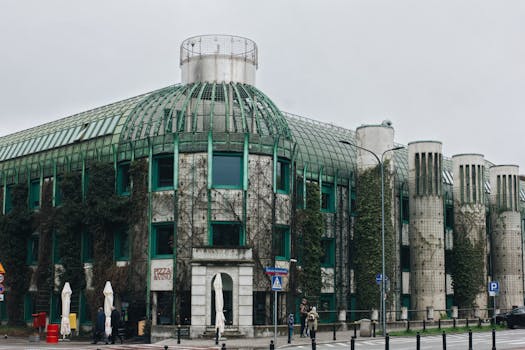
Sustainable Cities: How Europe is Shaping Eco-Friendly Lifestyles by 2025
Sustainable Cities are becoming increasingly important as the world shifts towards a more environmentally conscious lifestyle. Europe is at the forefront of this movement, with many cities implementing innovative green initiatives to reduce their carbon footprint and promote eco-friendly living. In this article, we will explore how Europe is shaping sustainable cities and what we can expect by 2025.
Introduction to Sustainable Cities
Sustainable cities are designed to minimize their impact on the environment while providing a high quality of life for their citizens. This is achieved through a combination of green infrastructure, renewable energy, and eco-friendly transportation systems. European cities are leading the way in sustainable development, with many cities already implementing cutting-edge green technologies and initiatives.
Green Infrastructure in European Cities
Green infrastructure is a critical component of sustainable cities. This includes parks, gardens, and green roofs, which help to reduce urban heat islands, manage stormwater runoff, and improve air quality. Many European cities are investing heavily in green infrastructure, with cities like Copenhagen and Stockholm leading the way. For example, Copenhagen’s green roof initiative has resulted in over 50% of the city’s roofs being covered in greenery, while Stockholm’s Royal National City Park is one of the largest urban parks in the world.
Eco-Friendly Transportation in European Cities
Eco-friendly transportation is another key aspect of sustainable cities. Many European cities are promoting the use of electric and hybrid vehicles, as well as investing in public transportation systems. Cities like Amsterdam and Berlin are leading the way, with extensive networks of bike lanes and pedestrianized streets. For example, Amsterdam’s bike-friendly infrastructure has resulted in over 60% of residents using bicycles as their primary mode of transportation, while Berlin’s public transportation system is one of the most efficient in the world.
Renewable Energy in European Cities
Renewable energy is a critical component of sustainable cities. Many European cities are investing heavily in renewable energy sources, such as wind and solar power. Cities like Munich and Vienna are leading the way, with a focus on decentralized energy systems and community-led renewable energy initiatives. For example, Munich’s solar panel initiative has resulted in over 10% of the city’s energy coming from solar power, while Vienna’s district heating system is one of the most efficient in the world.
Conclusion
In conclusion, European cities are shaping the future of sustainable development, promoting eco-friendly lifestyles, and reducing their environmental footprint. By 2025, we can expect to see even more innovative green initiatives, from green infrastructure and eco-friendly transportation systems to renewable energy and decentralized energy systems. As the world continues to urbanize, it’s essential that we prioritize sustainable development and create cities that are not only environmentally friendly but also provide a high quality of life for their citizens.




